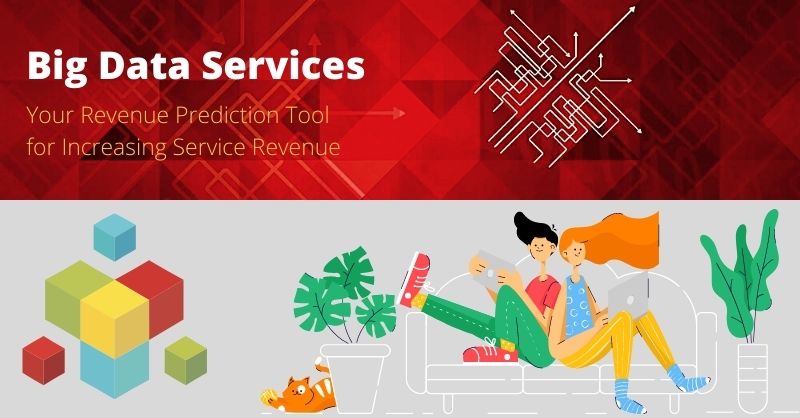Companies have always dealt with vast volumes of data from many different sources of information, both internal and external in nature. Because of the ability to manage Big Data, all of the information that is generated every day around the channels of action and external sources of data can now be used to gain competitive advantages for businesses, resulting in a series of real benefits.
Big data is all the rage these days and for good reason. However, what exactly is big data?
It’s far more than just a catchphrase. In reality, analysts estimate that it is a $5 billion business with the potential to expand to more than $50 billion over the next five years, according to their estimates. It is a market characterized by data, which is recognized for its “quantity, wide range, and velocity,” among other characteristics.
Businesses face a variety of challenges, including complex industry collaborations, creative tactics, and cross-cutting industry rivalry, when it comes to making strategic and operational choices that will help them develop and remain competitive. Many businesses who are trying to use “big data” to help them make better business choices have difficulties in processing and interpreting such massive and rapidly changing datasets. Big data services, on the other hand, may be used to generate value for enterprises. Although a variety of frameworks for implementing analytics are available, only a few of them are capable of supporting the deployment of big data analytics.
What is sales forecasting in big data and how does it work?
Sales forecasting is the practice of making educated guesses about future sales with the purpose of better informing your business decision. Any combination of historical sales data, industry benchmarks, and economic trends is often used to create a projection for the future. It is a system meant to assist you in more effectively managing your staff, ash flow, or any other resources that may have an impact on income and sales.
It is often simpler for established firms to make more accurate sales projections based on historical sales data than it is for new enterprises. Businesses that are just starting out will have to depend on data from market research, competition benchmarks, and other sources of interest in order to build a baseline for sales figures.
The following are some examples of how big data services might assist in increasing business revenue:
Data Scheduling and Arrangement
The first method is the arranging of data while taking your company objectives into consideration. Big Data assists you in organizing the data in accordance with your company objectives and requirements. Because it gives you a clear view of your data, you may develop or modify creative business plans and make prudent investments while making choices that are advantageous to the organization as a whole.
Analytics of Large Data Sets
The analytics solution provided by Big Data assists you in better analyzing website traffic patterns and predicting the typical delivery time of a product, allowing you to better serve your discriminating customers’ needs. If Big Data is utilized regularly, it may assist you in understanding the needs of your customers and in making real-time choices to meet those requirements with confidence.
Management that is improvised
One of the most important benefits of using Big Data is that it improves management and saves time for everyone involved. It examines and considers business data in order to ensure that the business process runs as efficiently as possible. Big Data services assist in the development of SWOT (Strengths, Weaknesses, Opportunities, and Threats) analyses of organizations. Big Data not only gives you better control over your company data, but it also helps you build stronger connections with your co-workers.
Sales have increased
When Big Data is used to undertake linkage analysis, it may assist your firm increase sales. Big Data makes use of the data to provide your target audience with services that they demand by evaluating their requirements, which is known as data mining. As a result, your company’s revenue is likely to grow in the most promising way possible as well. In addition to assisting in the conversation of leads and the management of ever-evolving volume, variety, and pace, it makes complicated information more understandable by making it easier to comprehend.
The Role of the Channel in Big Data
If, while developing your big data strategy, you fail to take into consideration your channel partners, as well as the data sources that these parties depend on every day, such as ordering, sales, and CRM systems, to further fuel your efforts, you will be making a mistake. This is already being done by some data systems in the form of cloud-based service contract management platforms, which gather valuable data from all over the supply chain and use it as the foundation of automated and enhanced global sales mechanisms that create millions of dollars in additional revenues for resellers and their distribution partners.
Hi, I am Adam Smith, Admin Of TechSketcher, Creative blogger and Digital Marketer.
